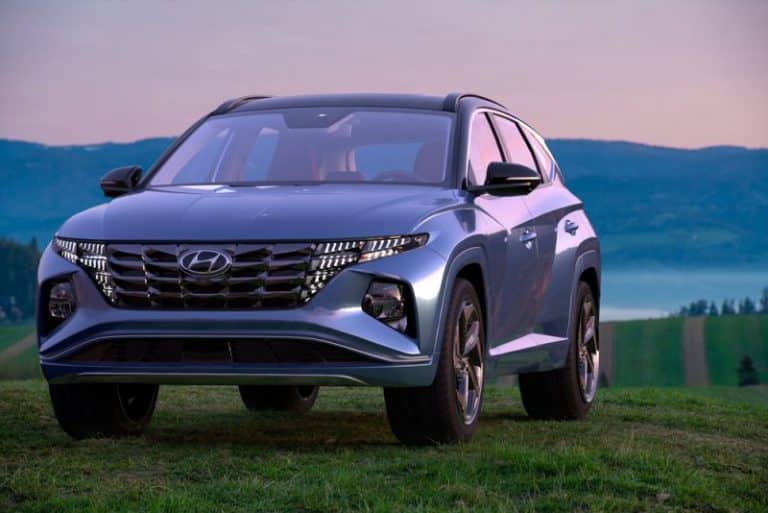Does Hyundai CPO Warranty Transfer? (Answered)
Hyundai is known for its most popular and reliable cars. Every Hyundai new car offers “Hyundai assurance” or “America’s Best Warranty,” which could be why drivers all across America love and trust Hyundai models.
If you want to buy a new or used Hyundai automobile, you may want to know if the Hyundai CPO warranty is transferable.
Choosing a Hyundai CPO model ensures eligibility to warranty transfer, though not all parts, but you can transfer the majority. Notwithstanding, a few conditions may apply. Significantly, the vehicle sold must be within its original 10-year/100,000 miles warranty coverage term to receive transferred coverage for up to five years/60,000 miles, depending on whichever comes first.
What is Hyundai CPO Warranty?

When you buy a new Hyundai car, it comes with a warranty package that guarantees that your car is in proper operating order when you get behind the wheel.
Therefore, If a mechanical failure occurs during the warranty period, the company will repair, fix, or replace the parts for free.
The following are the key components covered by the warranty:
- The original owner enjoys a 10-year/100,000 miles Powertrain Limited Warranty: Simply put, this guarantee covers the components that allow your automobile to move, such as the engine, transmission, drive axles, and other front and rear axle shafts, certain gaskets and seals, transfer case, turbocharger, and other associated components.
- 10-year Unlimited Mileage Roadside Assistance Plan.
- The original owner also enjoys a Lifetime Hybrid Battery Warranty.
- 5-years/60,000miles Federal Emission Control Systems Warranties: Hyundai includes many federal emissions parts, such as catalytic converters or exhaust manifolds, defective in material or workmanship.
- An 8-year/80,000 miles Federal Emission Defect and Performance Warranty. This warranty also covers the catalytic converters and engine control modules.
- A seven-year/Unlimited mile Anti- Perforation Warranty: The company will repair and replace materials such as rusted body sheet metal panels within the car’s first seven years.
- Five-year/60,000 miles New Vehicle Limited Warranty. It includes restoration or replacement of original Hyundai-installed components. It only applies to parts with material or manufacturer workmanship flaws, such as the fuel pump and alternator.
- Hyundai bumper-to-bumper warranty covers your vehicle only if it is properly maintained and used regularly. By the way, the warranty isn’t a lifelong deal.
- Five-year/Unlimited miles, 24-hour Roadside Assistance: This is especially beneficial if you’ve locked yourself out of your automobile or require towing services.
- 8-years/80,000 miles California Emission Control Systems Warranties: This covers the cars in California that adhere to the city’s emissions laws, where selected emissions systems and parts are covered.
- A one-year/12,000 miles Replacement Parts and Accessories Limited Warranty: This warranty covers the replacement parts and accessories bought or installed at an authorized Hyundai dealership while purchasing a new Hyundai vehicle.
Similarly, those added afterward will also be covered by a one-year guarantee starting on installation.
| - 2012-2019 owners of Hyundai are qualified for a lifetime hybrid battery warranty, as long as the original buyer owns them. Subsequent owners receive a 10-year/100,000miles guarantee for their hybrid cars.
How Does Hyundai CPO Warranty Work?
The transfer of a Hyundai warranty is a simple process handled by Hyundai dealers.
All you have to do is call Hyundai’s 800 number, speak with an agent, give them your Vehicle Identification Number (VIN), and they’ll tell you how much warranty coverage you have left based on your ownership or the next owner’s ownership.
Furthermore, the warranty automatically transfers without any sign-up or turn-over.
The dealer can then update the owner’s information on Hyundai’s website so that Hyundai is aware of who owns the vehicle.
However, the warranty remains with the vehicle, not the driver, so when you sell or retitle your Hyundai and register it to a new owner, the warranty becomes theirs to enjoy.
Although there are certain exceptions in some parts of the warranty, for the most part, this is the case.
Note that the Hyundai warranty has sections covering different aspects of the car.
You can request a warranty booklet from your Hyundai dealer; alternatively, you can visit Hyundai’s website to learn more about your coverage.
What is Not Covered by Hyundai’s Warranty?
Even though Hyundai offers extensive automobile warranties, this does not mean that the warranty covers everything. You will not be responsible for any repairs after purchasing a new Hyundai.
The Hyundai warranty does not cover the following things:
- Regular maintenance services are required, such as oil changes, tune-ups, and minor adjustments.
- Any vehicle with an altered odometer.
- Wear-and-tear parts include pads, spark plugs, filters, and wiper blades.
- Damage from vehicle neglect, misuse, or abuse.
- Damages from environmental factors such as tree sap, acid rain, and natural calamities.
- Vehicles with salvaged or rebuilt titles.
- Theft or vandalism.
- An accident’s damage.
- Aftermarket modification.
Furthermore, there are some restrictions for specific components, such as:
- Battery: 3-years/36,000 miles.
- Paint: 3-years/36,000.
- Service adjustments: 12-month/12,000miles.
- Air conditioner refrigerant charge: 12-month/unlimited miles.
Read More: Does Honda Warranty Cover Tires?
What is Hyundai Extended Warranty?
Hyundai’s manufacturer warranty will cover you for the first few years of your vehicle’s life.
But when it expires, you have an option to renew and prolong its duration; this is the Hyundai extended warranty.
This process is also known as “car service contracts.”
However, to do this, Hyundai provides three-car protection plans: Platinum, Gold, and Powertrain. Let me give you further insight on these.
#1. Platinum
Platinum is the most comprehensive Hyundai Extended warranty. It covers a 10-year/100,000miles warranty for the following parts:
Engine, transmission, drive axle, high-tech, front suspension, rear suspension, fuel system, audio, electrical system, climate control, shocks, breaks, navigation, steering, CV boots
#2. Gold
Here is a medium-class warranty covering a 10-year warranty/100,000 miles for engine, transmission, drive axle, front suspension, rear suspension, fuel system, audio electrical system, and climate control.
#3. Powertrain
The powertrain warranty covers essential parts with a 10-year/100,000 miles warranty. The parts covered are the engine, transmission, and drive axle.
Note: The Hyundai extended warranty plans consist of the following:
- Service at all Hyundai dealers nationwide
- Towing to the nearest Hyundai dealership or authorized repair facility
- 24/7 roadside assistance
- Rental car reimbursement ($35 per day for up to 10 days)
- Authentic Hyundai parts
- Trip interruption coverage ($200 per day for up to 5 days)
- Transferable coverage
What is Not Covered by Hyundai’s Extended Warranty?

Of course, some specific exclusions also apply here. Hyundai extended warranty coverage does not pay to repair:
- Glass
- Bumpers and exterior trim
- Wear items such as brake pads and shoes
- Mechanical breakdowns are covered by the Hyundai factory warranty.
- Mechanical breakdowns due to poor maintenance, misuse, or negligence.
- Mechanical breakdowns due to an accident, collision, or weather-related damage.
- Theft or vandalism.
Conclusion
Many drivers choose the Hyundai brand because of its affordability and low repair expenses. You might choose to save some money by purchasing a used car instead of a brand new one.
The Hyundai CPO warranty extends the vehicle’s life and provides additional protection to the driver.
That also means that, in comparison to other car owners, drivers should not have any less or no concerns when on the road.






